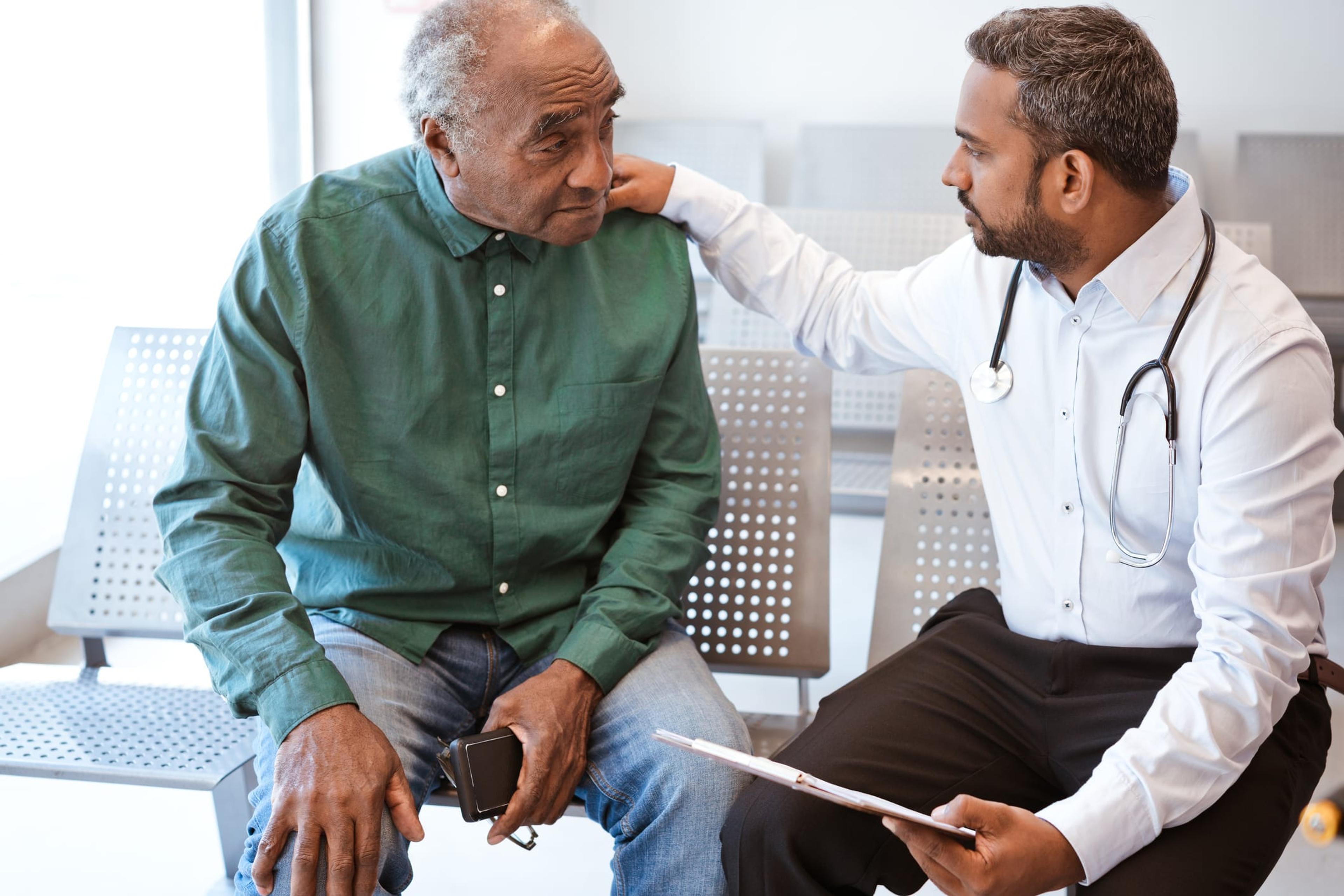Common Health Concerns as You Age
Dr. Namita Yende
| 4 min read

Graying hair or wrinkles are common concerns for people as they age, but there are more important changes that are often overlooked. Aging can bring about some changes that are easily dismissed or ignored out of embarrassment, such as an increased risk of falling, urinary incontinence and an increase in mental health conditions.
It’s important to recognize these changes and address them with a primary care doctor (PCP) to get proper care. Here are some common aging-related concerns and how to reduce the risk:
Falling
About one out of every four older adults will experience a fall each year and around 30% of adults age 65 years or older will experience dizziness or balance issues in their lifetime. Injuries from a fall can include broken bones, as bones can weaken with age. This could lead to more serious and long-term health problems.
A fear of falling may lead individuals to limit their physical activity to avoid injury. However, individuals can reduce their risk of falling with exercises such as yoga and tai chi to help build strength and balance.
In the home, preventive measures such as moving lamp cords out of high traffic areas or increased lighting can reduce the risk of trips and falls.
Urinary incontinence
Urinary incontinence is when a person involuntarily leaks urine. Those affected typically find the condition embarrassing, but it’s important to remember that it can happen to anyone for a variety of reasons. It is a very common symptom of aging.
Urinary incontinence can be treated or prevented. Weight loss, limiting alcohol consumption and stopping smoking can all reduce bladder issues. Specific exercises can also help reduce the discomfort that comes with incontinence.
Mental health concerns
A new report has found a significant increase in mental health conditions such as anxiety and depression among adults over 65 years.
Factors like a decline in physical or cognitive ability or a reduced sense of purpose can cause mental distress to seniors navigating this new part of life. Other major life transitions such as retirement, loss of a spouse or moving away could increase the chances of social isolation and loneliness.
According to a National Poll on Healthy Aging, 42% of adults aged 50 and older felt it was harder to make friends compared to when they were younger despite 75% showing an interest in building new friendships.
Since mental and physical health often coincide, addressing one tends to naturally improve the other. That is why incorporating low-risk exercises such as yoga, walking or swimming into an everyday routine has been shown to relieve symptoms of depression and anxiety among older adults.
Staying fit to reduce age-related health risks
Exercise and physical activity are important for maintaining strength and balance and reducing health risks. Balance training is another key for the health of older adults. Three or more hours a week of balance training has been shown to reduce the risk of falls by 20% or more and aids in maintaining core strength.
A 2025 medical research study of over 13,000 older adults found higher physical activity was associated with lower depression symptoms as well as a decrease in body inflammation. Since mental and physical health are intertwined, engaging in an appropriate amount of exercise can improve mental health.
All adults over 65 are encouraged to get at least 150 minutes of exercise every week at a moderate intensity. However, before starting a new routine, it’s important to check with a health care provider to ensure proper instruction and guidance.
Primary care providers want to help and provide the best possible treatment. By being open, honest and talking about concerns or questions, PCPs can address issues promptly and appropriately.
Namita Yende is a senior medical director & associate CMO with Blue Cross Blue Shield of Michigan. For more health tips and information visit MIBlueDaily.com.
Related reading:
- Your Guide to Healthy Aging
- Dangers and Risks of UTIs in Older Adults
- Recognizing Passive Suicidal Ideation in Older Adults
Photo credit: Getty Images





